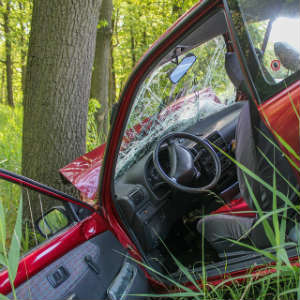At the end of this month, on June 29th, 2017, new regulations regarding ride-sharing apps like Uber and Lyft will go into effect. These regulations, recently approved by Governor Cuomo and pushed through quickly so that drivers and riders alike could benefit over the Fourth of July weekend, “provides for a fair, safe and compressive ride sharing system that will benefit communities in every corner of this state.” One of the new regulations specifically addresses the need for the ride-sharing company to provide the drivers with workers’ compensation.
Driving Is A Dangerous Job
Did you know that in the state of New York, there are typically more than 300,000 automobile crashes each year, involving more than 600,000 vehicles? For example, according to the New York DMV, in 2014 alone there were 299,452 accidents. Of those, at least 118,465 
The more time that a person spends on the road, the higher their chance of being involved in an accident. So naturally, if someone decides to be a driver for a ride-share app like Uber or Lyft, they may find that they become the victim of a negligent driver who was:
Speeding
The adrenaline rush that people get from driving at high speeds can be quite thrilling but the problem is that even though they may feel like they are in control, it only takes a split second for them to lose control. When traveling at high speeds, going around a turn may cause the vehicle to roll and if the driver needs to come to a complete stop suddenly, they require more time and distance to do so.
Texting
It’s no secret that using a cell phone takes a driver’s eyes off of the road. In New York, it is against the law to text and drive for this very reason, yet every single day accidents are caused by texting drivers.
Drunk Driving
Alcohol impairs vision, muscle movement, and doesn’t allow a driver to think very clearly, which is why it’s illegal to get behind the wheel of a car if you are drunk. However, this law doesn’t stop thousands from making a bad decision. In fact, the average drunk driver had gotten behind the wheel of a car 80 times before they are caught and a large percentage of people who have had their license suspended or revoked continue to drive anyway – often intoxicated.
Distracted Driving
Eating, drinking, applying makeup, reading, watching TV, and talking to other passengers can all distract a driver and pull their attention from the road in front of them.
When any of these things causes an accident to occur, the damage done to those unlucky enough to be involved can be astronomical. Injuries that are frequently sustained in car accidents include:
- Broken Bones
- Traumatic Brain Injury
- Amputations
- Lacerations
- Spinal Injury
- Crush Injuries
- Internal Injuries
- Muscle & Nerve Injuries
Car Insurance Often Isn’t Enough
Did you know that if a car accident victim suffers from a serious brain injury, the cost of care for their lifetime may be as high as $3 million? There aren’t many people in the United States that can afford those medical expenses and the average car insurance policy only covers $25,000 in bodily injury, which is the state minimum.
Given this information, it’s hardly surprising the new regulations insist that workers’ compensation must be given to riding-sharing company drivers.
What Is Workers’ Compensation?
Workers’ compensation is a type of no-fault insurance that is designed to protect employees who become injured on the job. The policy is supposed to cover all employees, even if their own actions contributed to the accident which caused them injury with few exceptions. Coverage should provide the injured worker with compensation for their medical expenses and a fraction of lost wages if they are unable to return to work.
While making a claim should be a simple process, especially for someone who is already handing enough stress and pain, but it’s not. Workers’ comp claims are frequently denied, leaving the applicant shocked and in financial distress.
Why Are Workers’ Comp Claims Denied?
There are several common reasons why a claim would be denied:
A Mistake On The Claim Form
Just a simple mistake give the insurance company the right to issue a denial. Claim forms can be long and confusing and without help, many applicants make mistakes.
An Employer Disputes The Claim
If an employer believes the claim isn’t valid and that the injuries were not caused by a job-related accident, they have the right to dispute the claim. Sometimes, an employer will do this to avoid having their premiums go up.
The Medical Records Are Confusing
An insurance adjuster will want to review the worker’s medical records, however, not every doctor is good about taking records and if they fail to do so, or fail to fully describe what happened, the claim may be denied.
The sad truth is, insurance companies often train their adjusters to look for reasons to deny a claim, hoping the applicant won’t fight it and the company will be saved money.
Avoiding Or Fighting A Denial
The best way to obtain compensation as quickly as possible is to contact a qualified and experienced workers’ compensation attorney. An attorney can help by:
- handling the claim forms and all other paperwork
- talking to the insurance company
- reviewing all records
- going over bills and determining what is owed
- investigating the accident and determining if there are other ways to obtain compensation
There are strict deadlines for filing either the initial application or an appeal so it’s important for applicants to contact an attorney as quickly as possible.
What Other Forms Of Compensation Are There?
When our clients come to us, many of them are unaware that they are eligible to pursue other avenues that may provide them with additional compensation. This could include:
Social Security Disability
If the injury sustained leaves the worker with a permanent disability, they may be able to obtain compensation through Social Security Disability Insurance. This may provide them with money that will help them pay their everyday bills but the process of obtaining payments is even more difficult than applying for workers’ compensation and nearly 65% of all claims are denied.
Personal Injury Lawsuits
If another party’s negligence causes the worker’s accident, they may be held legally responsible. For example, if an Uber driver is hit by a drunk driver and they sustain serious injuries, they may be able to file a lawsuit against the other driver.
Lawsuits can provide the worker with additional compensation that will cover their medical expenses, lost wages, physical pain and suffering, and even emotional trauma. A lawsuit can be filed even if the worker has obtained workers’ compensation.
What Happens If The Worker Dies?
In cases where the worker succumbs to their job-related injuries, their loved ones may be able to obtain death benefits through both a workers’ compensation claim or personal injury lawsuit on their behalf. This can provide loved ones with compensation to cover funeral and burial expenses, loss of income, loss of consortium, loss of inheritance, and any medical treatments that were given to the deceased for the injuries which lead to their death.

